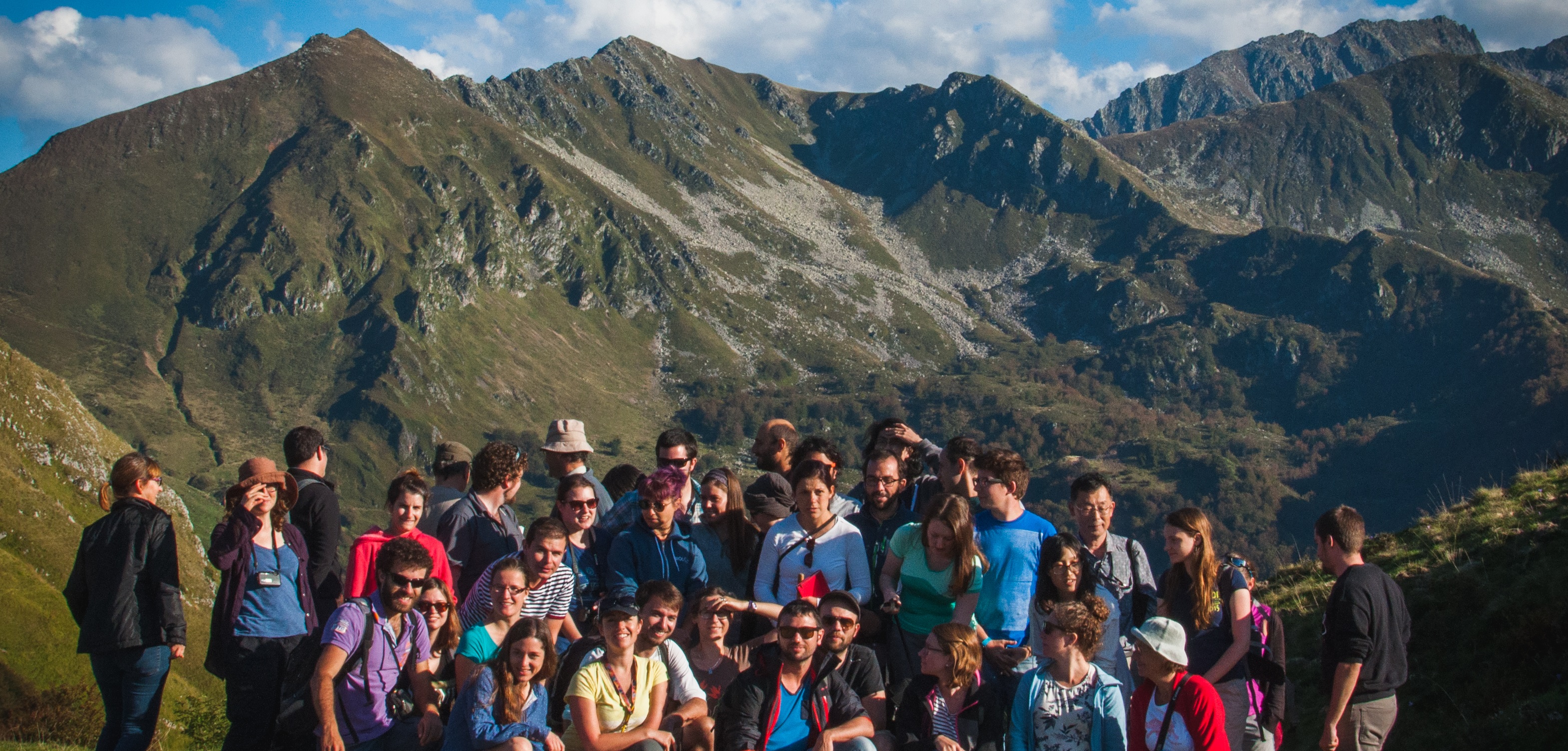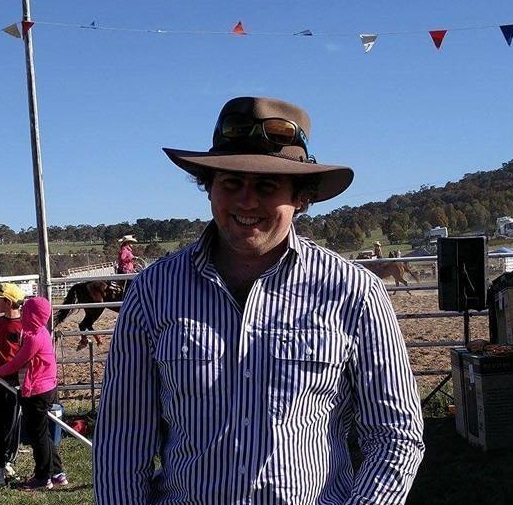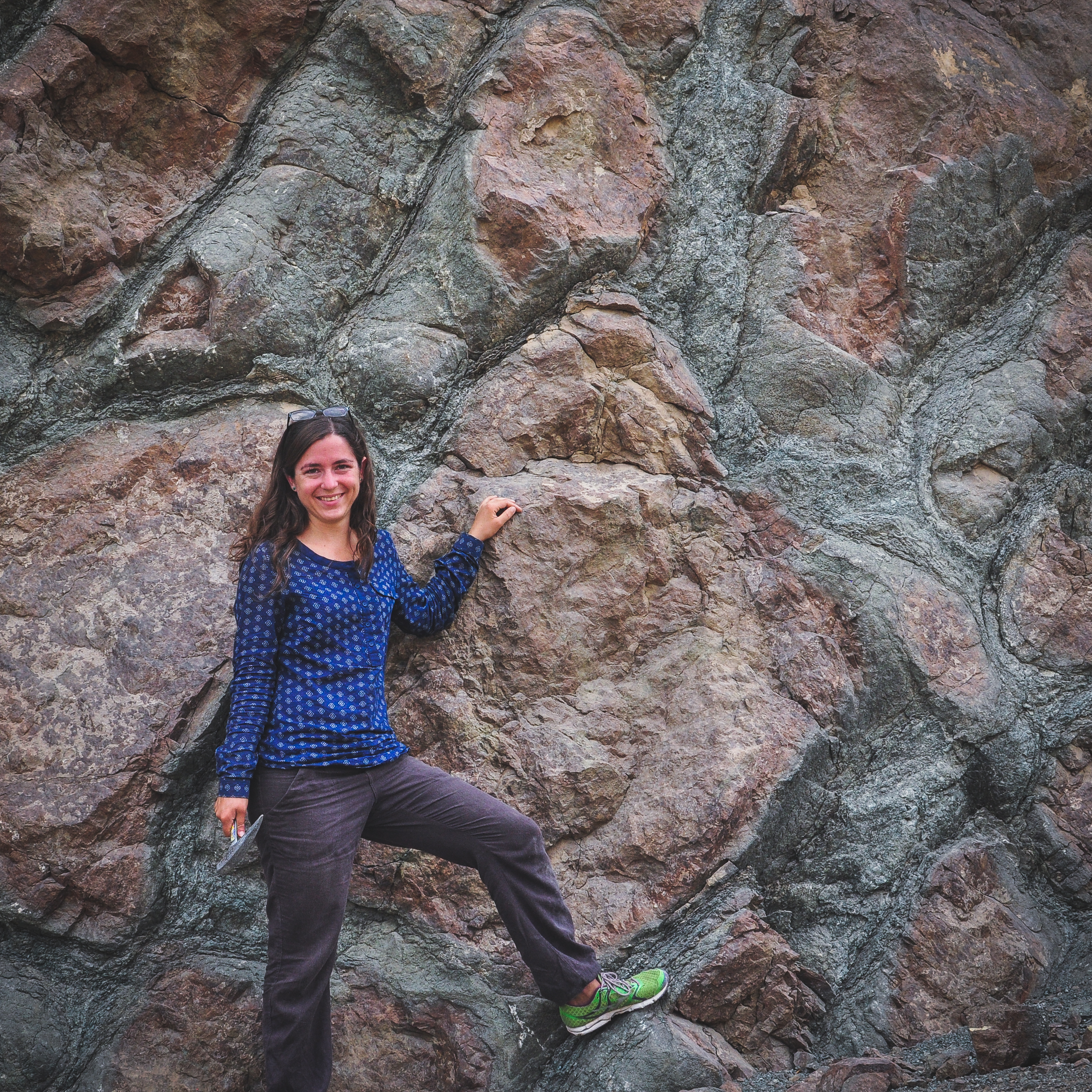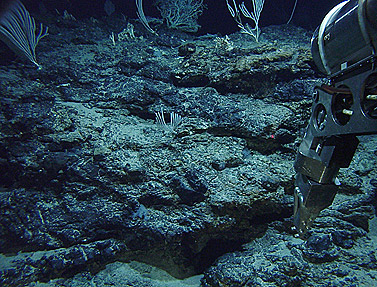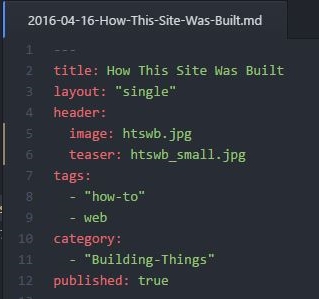Serpentine Nights
Note This post is an excerpt from an article I co-wrote with Joëlle Ducommun for the European Association of Geochemistry (EAG), which provided financial support enabling us to attend. The original article can be found here. We thank the EAG for the financial support which enabled us to attend Serpentine Days, and also the organisers of the workshop for their efforts in putting together a very successful and thoroughly enjoyable meeting.
This past September fellow ANU PhD student Joëlle and I had the privilege to attend Serpentine Days, a biannual workshop on serpentinite and serpentinization processes which is distinctly multidisciplinary. The workshop covers much of the active research on serpentinites, including everything from microbiological communities in near surface environments, through serpentinite dehydration at great depth within subduction zones and all the way out to investigations of the surface of mars. Serpentinization is one of the key processes controlling a number of global geochemical cycles, being the carrier of the bulk of bound water into subduction zones and with further relevance for carbon cycling. More recently, the discovery of microbial communities associated with serpentinite-hosted hydrothermal systems has spurred research into these environments as life-supporting habitats.
This year the Serpentine Days workshop was held at Sète. Located approximately half an hour south of Montpellier, France and is situated on the Mediterranean Sea, the town is famous for its seafood and as a seaside destination for all ages. Despite the lack of any observable serpentinite, it made for an idyllic location to host a workshop. Our venue and accommodation for the workshop was Le Lazaret, a holiday village just off the beach. Each day of the workshop presented opportunities to network and discuss with other researchers; for a few days we were able to live and breathe science, all the while enjoying the delights of southern France. A field trip to the Pyrenees followed the completion of the workshop, visiting the hallowed Lherz peridotite (of lherzolite fame) and nearby serpentinite locality near Bestiac to investigate records of mantle exhumation during the Cretaceous rifting event in the North Pyrenean Zone.
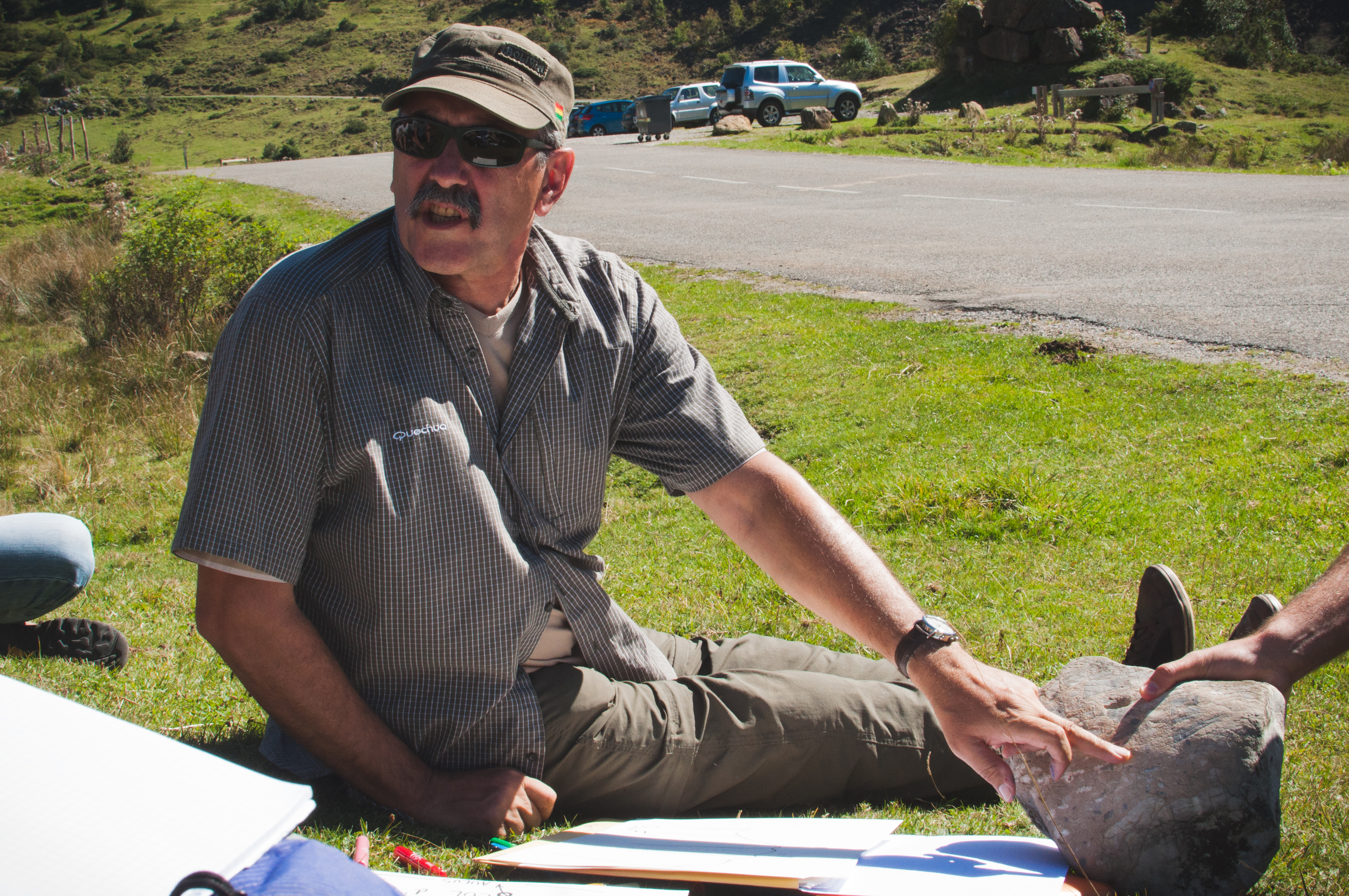
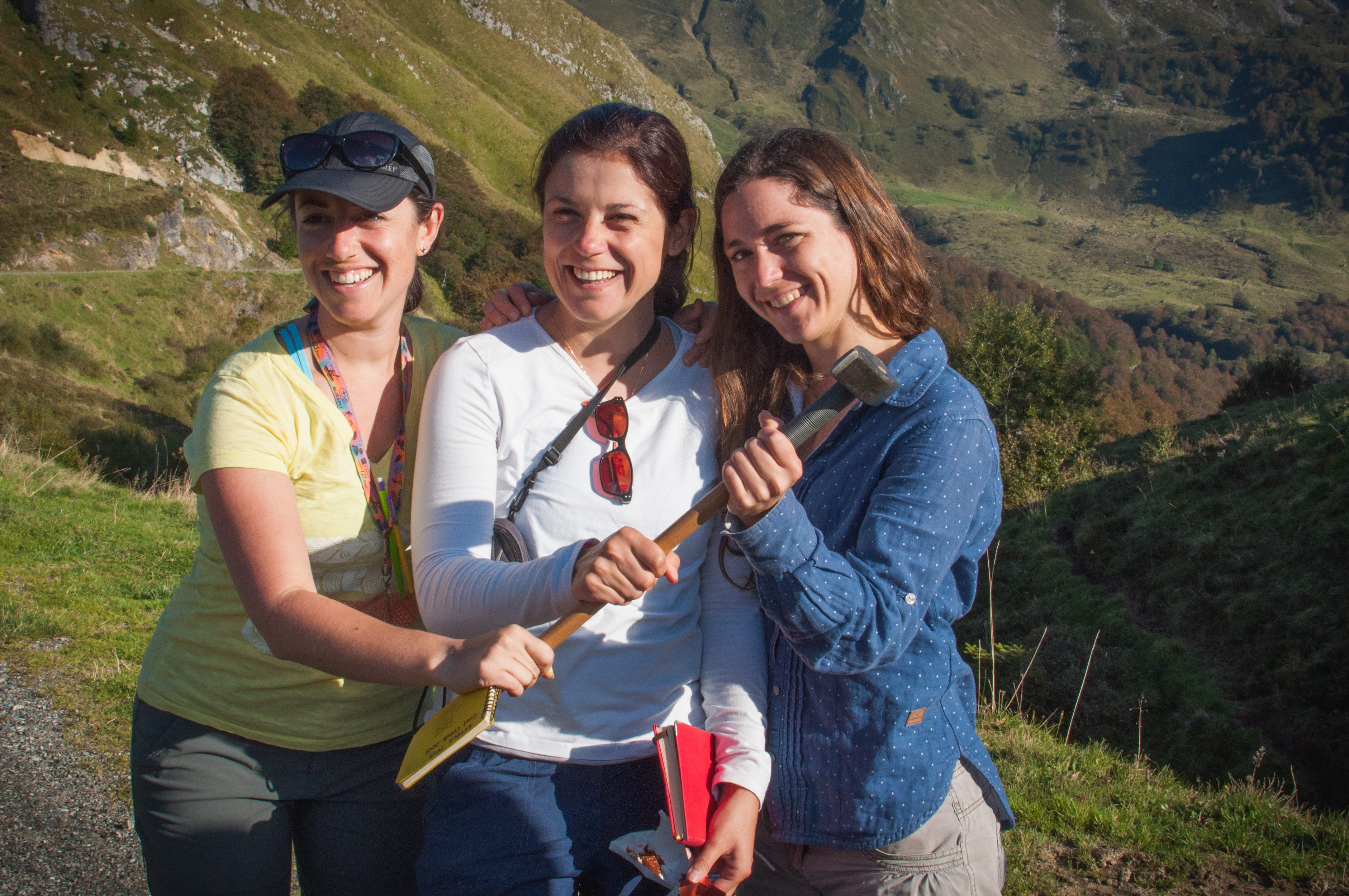
A Few Notes of My Own
During the workshop I presented a brief overview of my current research on serpentinites from the Atlantis Massif (which I’m completing as a science party member of IODP Expedition 357), and in particular how I’m investigating fluid-mobile/volatile elements and using in-situ techniques to provide greater constraints on the serpentinization process and evolution of the Massif. The novel aspects I discussed during this talk included microscale oxygen isotopic heterogeneities recording multistage serpentinization at generally elevated temperatures, and also atypically low serpentinite noble gas abundances. Some of the many talks I found intriguing covered the potential incorporation of sulfate within the serpentine structure (Baptiste Debret), the formation of organic films/gels at mineral interfaces (Bénédicte Menez), and unravelling alteration histories in ultramafic rocks using magnetite U-Th/He dating (Emily Cooperdock). In addition to hearing talks directly relevant to my own work, I was able to satisfy my inner child and interact with scientists studying extreme environments both here on Earth and on Mars. This led to some great conversations, particularly regarding the formation and evolution of early life. I was also grateful to have the opportunity to catch up with fellow Expedition 357 scientists and discuss research to date, and potential for collaboration both within and beyond the science party.
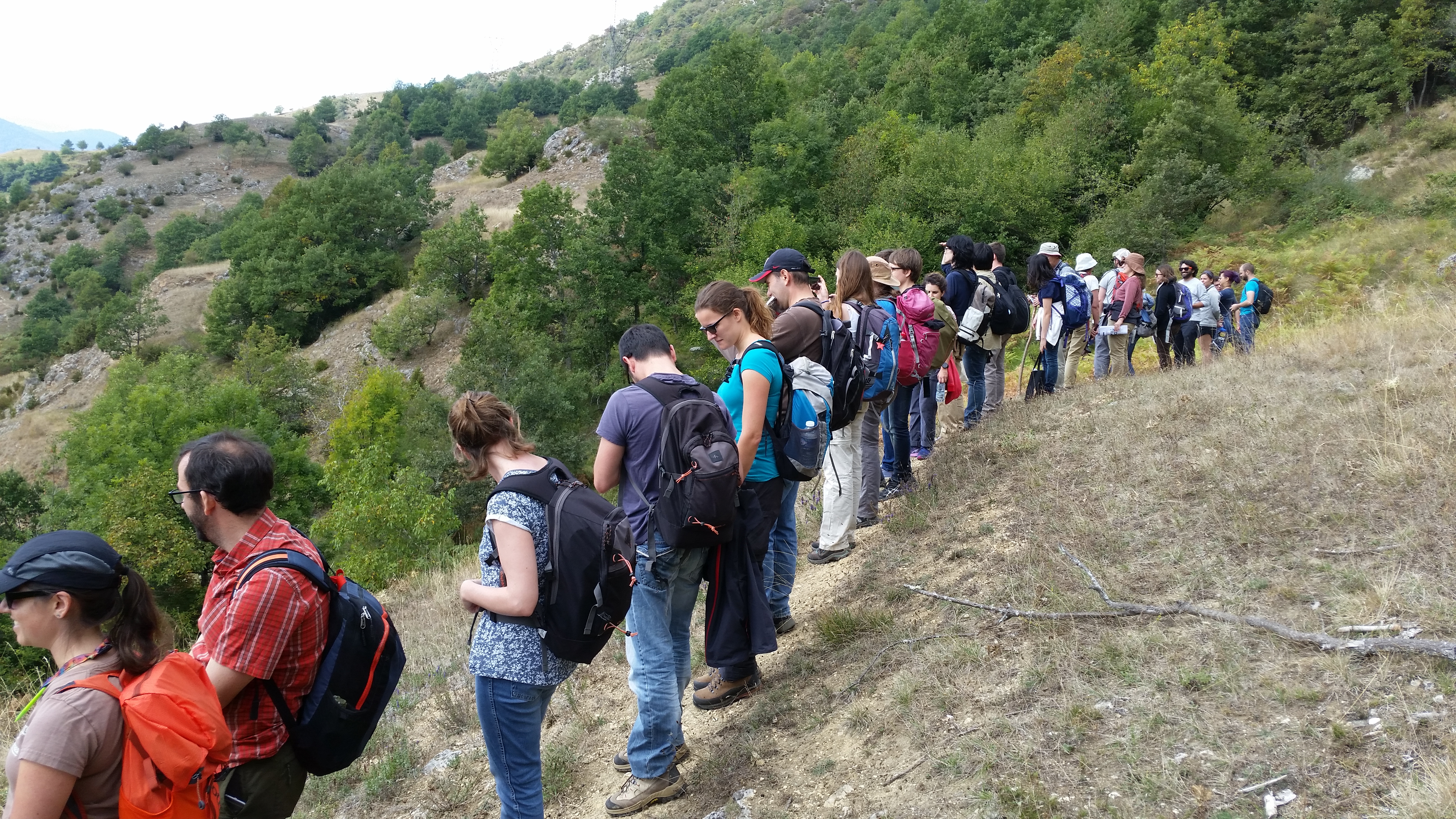
A Few Thoughts from Joëlle
The first international workshop I was privileged to attend was one of the most memorable experience I have had in my research journey so far. It was exactly what I needed at the time. Of course, I could start by mentioning that it was slightly intimidating to stand up in front of an expert audience, not feeling very much like a serpentinite expert myself, to present a research project on the quest of a noble gases and halogens surface signature from the Archaean. At the time, I had been working on my PhD project at the Australian National University for just over a year, and was starting to dig deeper into my main project focusing on the fate of volatiles during alteration of the oceanic crust. The workshop pushed me to take a step back to these remarkable Archaean samples that I had the opportunity to work with earlier on in my PhD. I am still astonished by the fact that these serpentinites, after surviving a 3.7 Ga year long history, sometimes still preserving their original textures, were eventually brought back all the way from Greenland to end up on my desk, offering an invaluable window into the early earth.
The workshop gave me the opportunity to gain experience in presenting my research, but mostly it helped me recover the enthusiasm and faith in science. As for many of my fellow PhD friends, I soon realized that during the ebb and flow of PhD life, it appears to be common to go through a dark tunnel. Doubts and questions take hold of the mind; we start to be sceptical about the journey we have embarked on and the relevance of the small details we are trying to understand. But being able to meet peers and colleagues, exchange ideas, friendships, good times and mostly lots of laughter, made me realized that science is very attractive when it is shared, that communicating and exchanging is what makes science, and that put together, the small details we are all tackling are part of a much broader and comprehensive story. At times, I admit, I have felt caught up in a system that lost its soul, a system that pushes students and academics to focus on personal objectives, to advance their careers, a system I had much trouble to identify with. The workshop was a perfect reminder that behind the aggressive and competitive academic life, there is still room for a science community, room to build something greater that goes far beyond each individual personal goal. I am very thankful to have been given the opportunity to meet whole hearted scientists passionate about their work but mostly about passing on their knowledge and their experiences, and I am very much looking forward to crossing their paths again.
